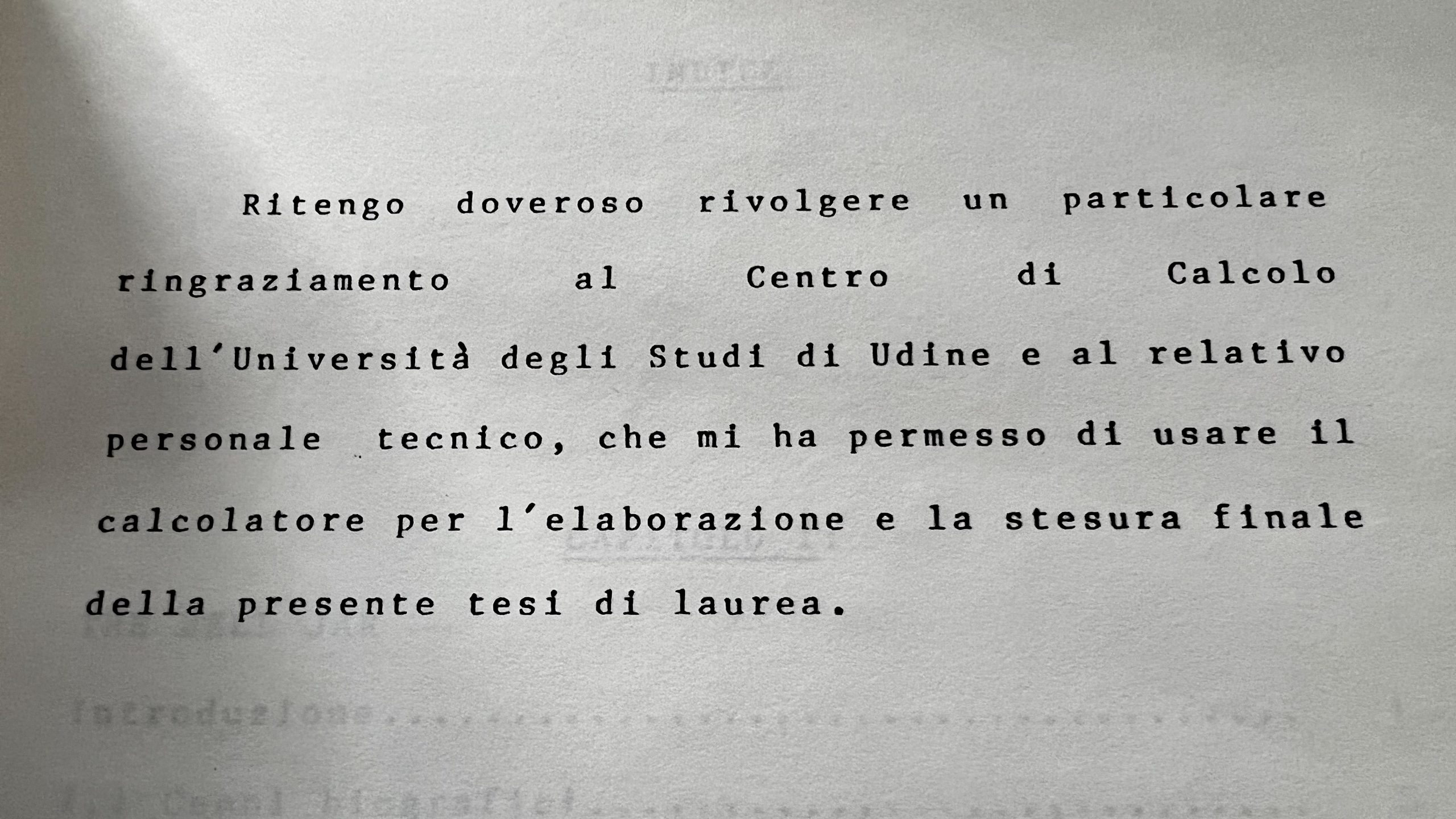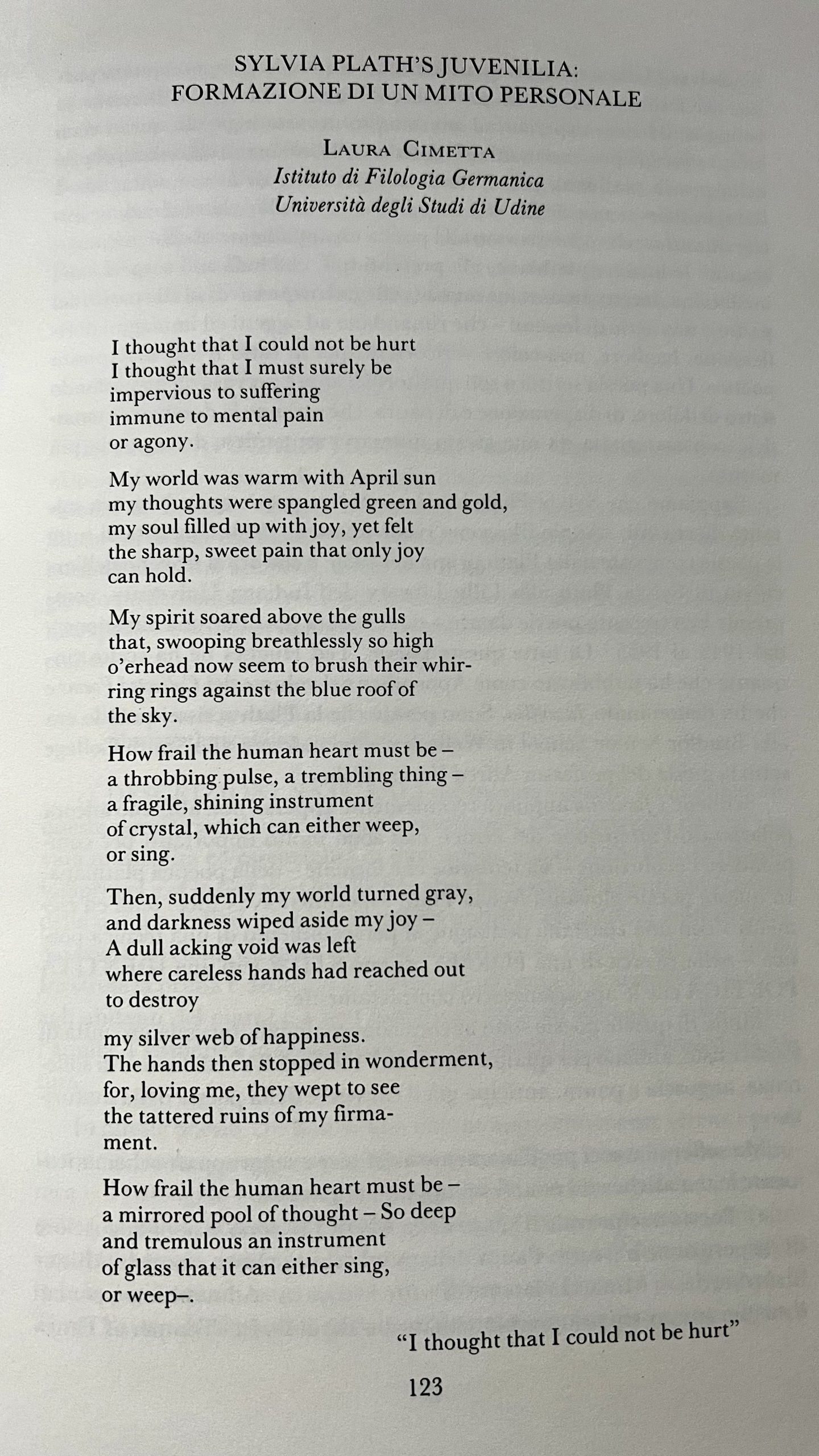I write only because/there is a voice within me/ That will not be still.
Giovedì scorso qui al Teatro Verdi di Pordenone ho visto uno spettacolo bellissimo: SYLVIA PLATH, Il Canto allo Specchio, un progetto di e con Sonia Bergamasco. Nel lontano 1985 feci la mia tesi di laurea su questa poetessa straordinaria, iniziando a leggere il suo romanzo The Bell Jar per poi dedicarmi ai suoi Juvenilia, Journals, Letters Home and all her Collected Poems. E’ stato un grande amore che ancora continua nella lettura delle nuove biografie.
Tornando allo spettacolo mi è piaciuta moltissimo la scelta fatta delle poesie e dei brani di prosa recitati divinamente da Sonia Bergamasco. E trovo azzeccato l’accostamento delle sue liriche alla voce del vento e del mare. Penso che anche chi non conosceva Sylvia Plath, durante lo spettacolo si sia fatto catturare, ammaliare e cullare dalla voce e dalla potenza dei suoi versi, sebbene in traduzione la sonorità non sia la stessa. Ed Infatti ha iniziato lo spettacolo con alcuni versi in inglese. Certe poesie come Daddy, Ariel, Lady Lazarus, Tulips sono pugni nello stomaco. Questa violenza, potenza e follia immaginifica è inimitabile. Io stessa durante lo spettacolo mi sono persa e non ricordavo nemmeno di quale poesia si trattasse ma “sentivo” dentro quel fuoco. Questa è poesia pura, totale come ha detto durante l’intervista finale. Ho amato anche il fatto che non ci sia stato cenno alla biografia durante lo spettacolo perchè spesso la Plath è stata solo “la poetessa che si è suicidata con la testa nel forno” o “la Musa di Ted Hughes” o “la moglie tradita che si è uccisa per dolore“. Rifuggo da queste semplificazioni e banalizzazioni. Sylvia Plath era una poetessa. Lo spettacolo si è focalizzato solamente sulla sua poeticità ed è durato un’ora, essenziale, scarno, intenso, emozionante. Mi è tornata la voglia di rileggerla e così sto facendo e condividerò questo post con le mie amiche per la nostra come conversazione sorseggiando una cup of tea. E anche per chi la conosce o per chi vuole avvicinarsi alla sua poesia che poco è stata trattata a scuola purtroppo.
WHY SHOULD YOU READ SYLVIA PLATH?
The Bell Jar: some quotes to choose and discuss. Incipit: “It was a queer, sultry summer, the summer they executed the Rosenbergs, and I didn’t know what I was doing in New York. I’m stupid about executions. The idea of being electrocuted makes me sick, and that’s all there was to read about in the papers — goggle-eyed headlines staring up at me at every street corner and at the fusty, peanut-smelling mouth of every subway. It had nothing to do with me, but I couldn’t help wondering what it would be like, being burned alive all along your nerves. I thought it must be the worst thing in the world. New York was bad enough. By nine in the morning the fake, country-wet freshness that somehow seeped in overnight evaporated like the tail end of a sweet dream. Mirage-gray at the bottom of their granite canyons, the hot streets wavered in the sun, the car tops sizzled and glittered, and the dry, cindery dust blew into my eyes and down my throat.”
“To the person in the bell jar, blank and stopped as a dead baby, the world itself is a bad dream.” “I saw the days of the year stretching ahead like a series of bright, white boxes, and separating one box from another was sleep, like a black shade. Only for me, the long perspective of shades that set off one box from the next day had suddenly snapped up, and I could see day after day after day glaring ahead of me like a white, broad, infinitely desolate avenue.”
“We’ll act as if all this were a bad dream.” A bad dream. To the person in the bell jar, blank and stopped as a dead baby, the world itself is the bad dream.A bad dream.”
There’s a movie on Sylvia Plath: SYLVIA. (2003) British biographical drama film directed by Christine Jeffs and starring Gwyneth Paltrow & Daniel Craig. It tells a story based on the real-life romance between the poets Sylvia Plath and Ted Hughes. The film begins with their meeting at Cambridge in 1956 and ends with Sylvia Plath’s suicide in 1963.
Today we can even listen to Plath’s voice reading her poems or talking about poetry. I wish I had had this opportunity when I was doing my research for my thesis! Now I can not only visualise her looking at her photos but also “hear” her voice.
I’d like to read a powerful poem, that well exemplifies her poetry: MIRROR (1961)
I am silver and exact. I have no preconceptions.
Whatever I see I swallow immediately
Just as it is, unmisted by love or dislike.
I am not cruel, only truthful‚
The eye of a little god, four-cornered.
Most of the time I meditate on the opposite wall.
It is pink, with speckles. I have looked at it so long
I think it is part of my heart. But it flickers.
Faces and darkness separate us over and over.
Now I am a lake. A woman bends over me,
Searching my reaches for what she really is.
Then she turns to those liars, the candles or the moon.
I see her back, and reflect it faithfully.
She rewards me with tears and an agitation of hands.
I am important to her. She comes and goes.
Each morning it is her face that replaces the darkness.
In me she has drowned a young girl, and in me an old woman
Rises toward her day after day, like a terrible fish.
Sono d’argento e rigoroso. Non ho preconcetti.
Quello che vedo lo ingoio all’istante
così com’è, non velato da amore o da avversione.
Non sono crudele, sono solo veritiero—
l’occhio di un piccolo dio, quadrangolare.
Passo molte ore a meditare sulla parete di fronte.
È rosa e macchiettata. La guardo da tanto tempo
che credo faccia parte del mio cuore. Ma c’è e non c’è.
Facce e buio ci separano ripetutamente.
Ora sono un lago. Una donna si china su di me,
cercando nella mia distesa ciò che essa è veramente.
Poi si volge alle candele o alla luna, quelle bugiarde.
Vedo la sua schiena e la rifletto fedelmente.
Lei mi ricompensa con lacrime e un agitare di mani.
Sono importante per lei. Va e viene.
Ogni mattina è sua la faccia che prende il posto del buio.
In me ha annegato una ragazza e in me una vecchia
sale verso di lei giorno dopo giorno come un pesce tremendo.
Hope you’ve enjoyed this post. Oggi ho ritrovato la mia tesi di Laurea e la pubblicazione della parte sui Juvenilia, allora inediti. Aggiungo alcune foto della mia tesi di laurea realizzata nell’aula informatica con sistema DOS. Come si vede la stampa è davvero diversa da quelle di oggi. Ma già allora pensavo che la biografia fosse secondaria rispetto all’opera stessa.







Interesting links: Sylvia Plath in Mademoiselle Magazine, 1959 ; Article from The Guardian on her time in new York; Teenage Letters to Her Mother ; 1962 interview to Sylvia Plath.

Bellissimo post. Spero che circoli… e che avvicini più persone a questa straordinaria poetessa, e alla poesia in genere. In un tempo in cui dobbiamo tutti imparare a scegliere e usare le parole con attenzione e consapevolezza, come strumento di conoscenza e comprensione. E non come un’arma per ferire, dividere ed ingannare.
Grazie Carla, per avere commentato. E’ tanto che non rispondo nel mio Blog. Quando lo usavo a scuola passavo ore a rispondere ai ragazzi. Hai detto sante parole!